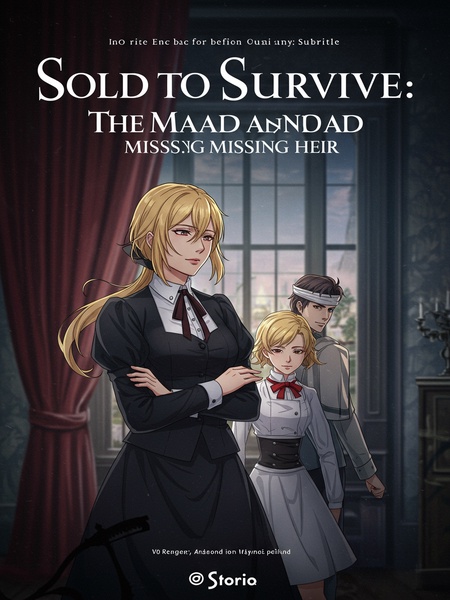Chapter 4: The Westfield House
I was sold to the Westfield family on the west side of town. The Westfields owned a big two-story house; Mr. Westfield was said to be a mid-level manager at the county office.
The first time I saw the house, I stared at the white columns and wide porch. The Westfield porch smelled faintly of lemon polish and old roses, a world away from the fried onions and woodsmoke back home. The grass was always cut, the hedges trimmed, a flag fluttered by the mailbox.
I was assigned to the second daughter’s part of the house as a rough maid, mostly sweeping the yard and running errands.
I’d sweep the stone path at dawn, watch the neighbor’s kids ride their bikes, and run to the store for groceries—always careful not to speak out of turn. The house was so quiet it made my ears ring.
The Westfield household was simple. Besides Mrs. Westfield, there was just one live-in helper, who’d once been her own maid. All three sons were Mrs. Westfield’s, and I heard they’d been sent to a fancy prep school out in Pennsylvania, only coming home once or twice a year.
Sometimes I’d find brochures for boarding schools with gold crests and pictures of ivy-covered buildings. It was another world—one I’d only seen in magazines at the grocery checkout.
All three sons were handsome, but the oldest was the most striking—like someone out of a movie.
The maids would whisper about him, calling him ‘the movie star’ whenever his picture showed up in a family frame. I’d catch myself staring, then feel silly for daydreaming about someone I’d never really met.
The oldest daughter, also Mrs. Westfield’s, was thirteen that year. She looked quiet, but she had a temper. The second daughter, the helper’s child, was only seven, round and fair like a little porcelain doll, always laughing, the youngest in the family and a bit simple, so everyone doted on her.
Sometimes she’d chase the dog around the back yard, laughing so hard she’d fall over. I’d help her up, brush the grass from her dress, and she’d smile at me like I was her big sister.
The Westfields didn’t treat their help harshly. In the year since I’d arrived, I’d put on weight. Mrs. Westfield even gave us a monthly wage, with bonuses at Christmas and Thanksgiving. I quietly saved every penny, hoping I could send it home someday.
At Christmas, we got stockings stuffed with oranges and chocolate, and a little bonus envelope. I tucked mine away, thinking about what my siblings could buy with it—a new coat, maybe, or shoes for the winter.
To me, every day was a good day. Compared to the backbreaking work at home, this was easy. In my spare time, I learned to tie knots, do basic sewing, and chatted with the other girls.
We’d sit in the kitchen after dinner, our hands busy with mending, swapping stories about our families, laughing about the smallest things—a dropped stitch, a burned pie.
The oldest daughter loved poetry and books. Her head maid, Lisa, was a good sort—generous and kind. Whenever she had time, she’d teach us to read.
Lisa would lend us dog-eared paperbacks, her voice soft and patient as she helped us sound out new words. The oldest daughter would recite lines from her favorite poems, her eyes shining with pride.
One day, I heard one of the girls sold to the city with me had been beaten to death by her new family. Only then did I realize my luck, ending up with decent people and living like I’d been blessed.
The news spread quietly, like a bad draft under a door. I remember sitting on the back steps, staring at my hands, realizing how close I’d come to a different fate.
Continue the story in our mobile app.
Seamless progress sync · Free reading · Offline chapters